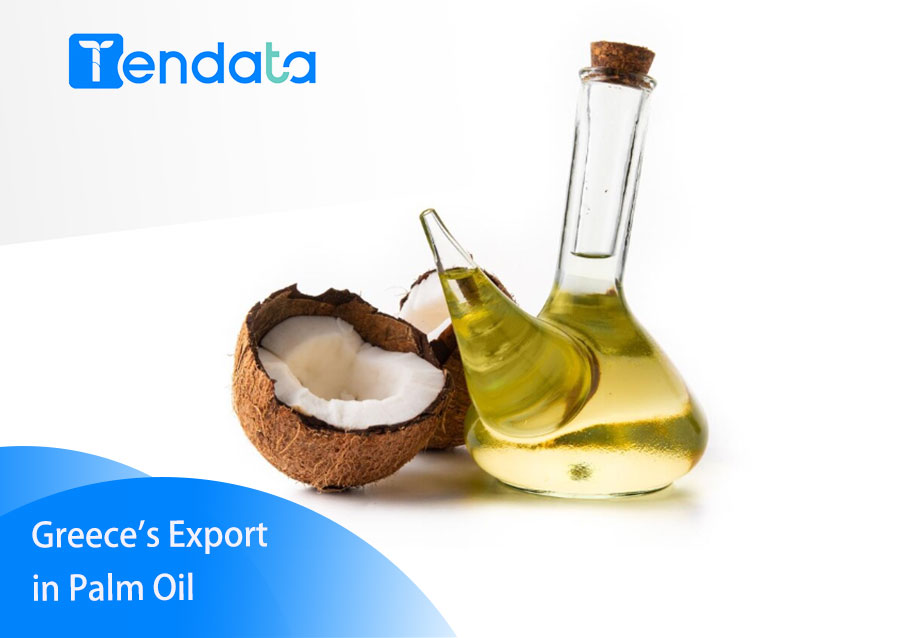 Export News
Export News
 22-01-2024
22-01-2024
Nestled amid beautiful islands, sun-kissed beaches, and ancient ruins, Greece stands as one of Europe's premier holiday destinations. With at least 250 days of sunshine, some islands, such as Crete, bask in sunlight for over 300 days. The country boasts a Mediterranean-flavored cuisine rich in vegetables, legumes, and all prepared with the healthful touch of olive oil.
Olive oil surpasses other oils, even finding its way into frying potatoes in local tavernas, where claims of everything being cooked in Greece export are commonplace. From being a staple in salad dressings to simply dipping in freshly baked bread, olive oil's culinary versatility is vast. The oil not only enhances the flavor of Greek dishes but also serves as a healthier alternative in cooking.

The Olive Heritage: A Gift from Athena
Renowned for cultivating the world's finest olives, Greece is synonymous with the production of high-quality olive oil and edible olives. The history of olives traces back to ancient times, with a mythological tale claiming that the goddess Athena gifted Athens an olive tree.
Greece cultivates various olive varieties, each offering distinct flavors and textures. Approximately 65% of Greece's olive oil production occurs in the Peloponnese Peninsula and Crete, contributing to a national annual output of 350,000 tons from olive groves across the country.
More than three-quarters of this production constitutes extra virgin olive oil, the highest quality category. With an annual yield of 120,000 tons, edible olives also play a vital role in Greece's agricultural exports.
Export Dynamics: Olive Oil Dominance
With olive oil deeply ingrained in the country's culinary traditions, Greece has become a significant player in the global olive oil market. The global demand for high-quality olive oil has boosted Greece's export revenue, positioning it as a key player in the international market. Olive oil's application extends beyond culinary delights; its quality makes it a sought-after ingredient in skincare and cosmetics.
The Classification of Greece Export Palm Oil Includes:
· Crude palm oil (HS code 151110)
· Palm kernel oil and babassu oil, and their fractions, whether or not refined, but not chemically modified (excluding crude) (HS code 151329)
· Crude palm kernel and babassu oil (HS code 151321)
· Palm oil and its fractions, whether or not refined (excluding chemically modified and crude) (HS code 151190)
In 2022, the total export value of Greece export palm oil amounted to 58 million USD, marking a 50% increase compared to 2021. The export of Greece export palm oil saw an increase of 19.6 million USD (with cumulative exports totaling 38 million USD in 2021).
Where Does Greece Export Palm Oil?
In 2022, the primary export destinations for Greece export palm oil were as follows:
1. Bulgaria, accounting for 59% (34 million USD)
2. Romania, comprising 16.2% (9.48 million USD)
3. Italy, representing 6.35% (3.71 million USD)
4. Poland, making up 5.09% (2.97 million USD)
5. Hungary, holding a share of 3.35% (1.95 million USD)
6. North Macedonia, accounting for 3.15% (1.84 million USD)
7. Croatia, making up 1.52% (891,000 USD)
8. Cyprus, representing 1.47% (860,000 USD)
9. Slovak Republic, holding a share of 1.28% (748,000 USD)
Conclusion: The Liquid Emissary of Greek Gastronomy
In conclusion, Greece's palm oil, predominantly in the form of olive oil, is not just a culinary delight but also an economic powerhouse. The exquisite flavor, health benefits, and cultural significance make Greek olive oil a liquid emissary of the country's gastronomic prowess. As Greece continues to export this liquid gold globally, its olive-rich shores leave an indelible mark on the world's taste buds and tables, embodying the essence of Mediterranean living.
Category
Leave Message for Demo Request or Questions


 T-info
T-info T-discovery
T-discovery

 My
Tendata
My
Tendata Market Analysis
Market Analysis Customer
Development
Customer
Development Competitor
Monitoring
Competitor
Monitoring Customer Relationship
Customer Relationship





































































































































